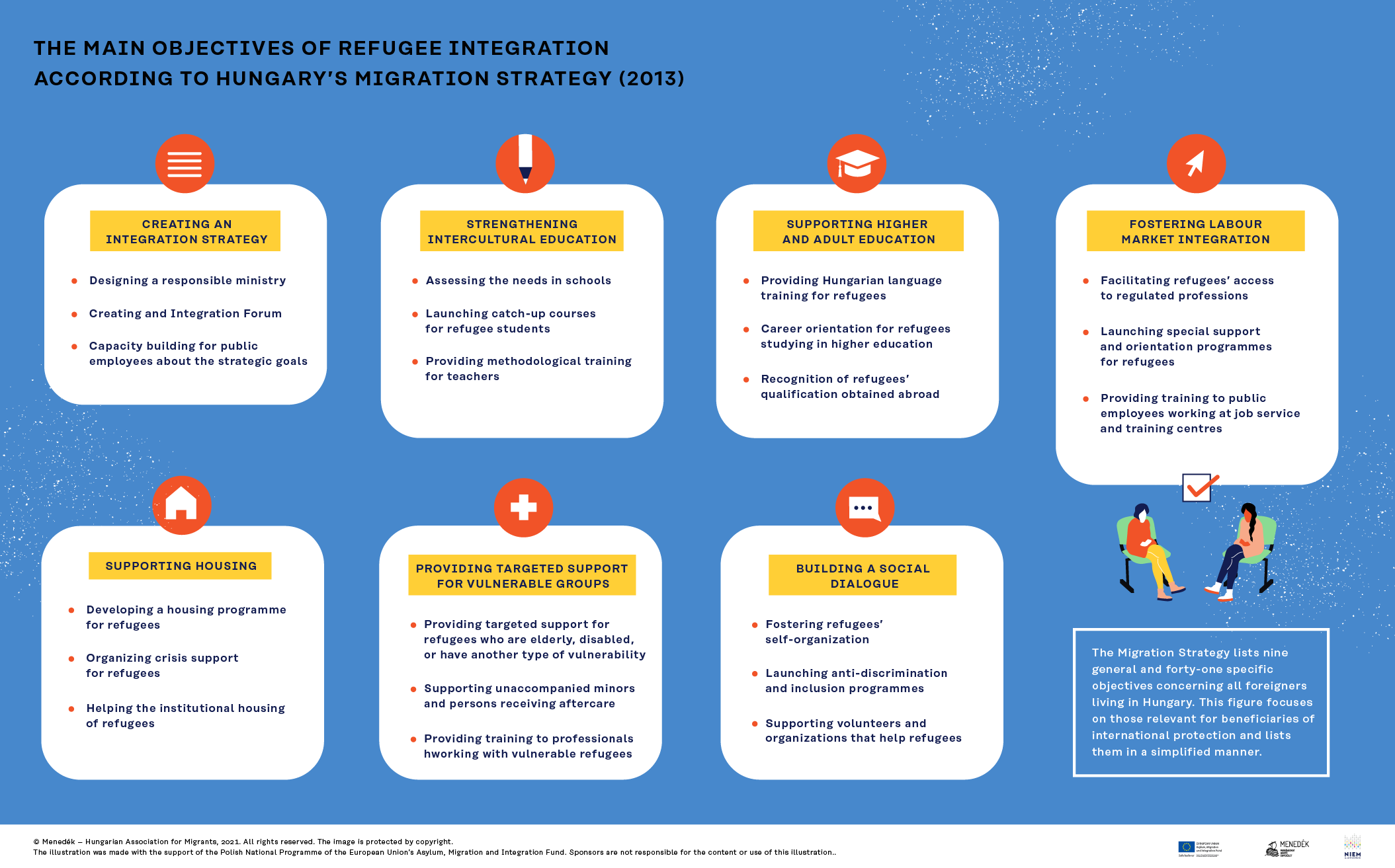
In 2013, when migration and asylum were not yet the focus of politics and propaganda, the Hungarian government prepared a complex strategic document in line with European standards. Hungary's Migration Strategy targeted important and relevant measures, and the European Union provided (or would have provided) resources for these policies. The strategy listed nine general and forty-one detailed objectives for all foreigners living in Hungary, including the social integration of refugees.
The Migration Strategy stipulated that Hungary should also have an Integration Strategy, in the creation of which foreigners living here could also participate. The aim was to strengthen intercultural education, to support the higher and adult education of refugees, to provide them with Hungarian language training and to recognize their qualifications obtained abroad. It called for special programs to help refugees integrate into the labor market and support their housing. It would have targeted assistance to vulnerable groups (eg the elderly, disabled or unaccompanied minor refugees) and developed social dialogue.
Unfortunately, almost nothing has been achieved for these purposes, as the government has dismantled institutions supporting migrants and refugees since 2015, ignoring its own previous Migration Strategy and letting even EU funds be lost rather than being used by NGOs to achieve the above-mentioned strategic goals.
The objectives of the 2013 Migration Strategy are therefore still relevant and would still be much needed to implement.
